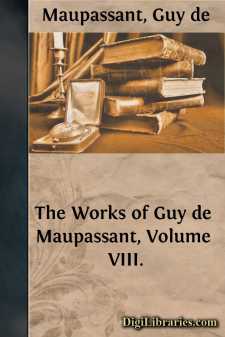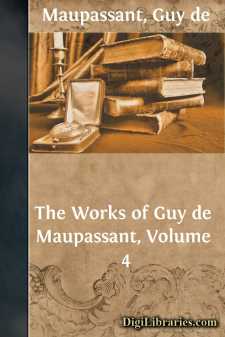Literary Collections
- American 84
- Ancient, Classical & Medieval 14
- Asian 1
- Australian & Oceanian 1
- Canadian 55
- Continental European 121
- English, Irish, Scottish, Welsh 179
- Essays 160
- General 24
- Letters 46
- Middle Eastern 1
Literary Collections Books
Sort by:
CHAPTER I THE OLD SEA-DOG AT THE “ADMIRAL BENBOW” Squire Trelawney, Dr. Livesey, and the rest of these gentlemen, having asked me to write down the whole particulars about Treasure Island, from the beginning to the end, keeping nothing back but the bearings of the island, and that only because there is still treasure not yet lifted, I take up my pen in the year of grace 17—, and go back to the...
more...
by:
Max Beerbohm
Dandies and Dandies How very delightful Grego's drawings are! For all their mad perspective and crude colour, they have indeed the sentiment of style, and they reveal, with surer delicacy than does any other record, the spirit of Mr. Brummell's day. Grego guides me, as Virgil Dante, through all the mysteries of that other world. He shows me those stiff-necked, over-hatted, wasp-waisted...
more...
by:
John Dryden
LIMBERHAM. The extreme indelicacy of this play would, in the present times furnish ample and most just grounds for the unfavourable reception it met with from the public. But in the reign of Charles II. many plays were applauded, in which the painting is, at least, as coarse as that of Dryden. "Bellamira, or the Mistress," a gross translation by Sir Charles Sedley of Terence's...
more...
by:
John Dryden
THE CONQUEST OF GRANADA. This play,—for the two parts only constitute an entire drama betwixt them,—seems to have been a favourite with Dryden, as well as with the public. In the Essay upon Heroic Plays, as well as in the dedication, the character of Almanzor is dwelt upon with that degree of complacency which an author experiences in analyzing a successful effort of his genius. Unquestionably the...
more...
by:
John Dryden
SCENE.—London. ACT I. SCENE I.—FAILER entering to BURR, who is putting on his buff-coat. Fail. What! not ready yet, man? Burr. You do not consider my voyage from Holland last night. Fail. Pish, a mere ferry; get up, get up: My cousin's maids will come and blanket thee anon; art thou not ashamed to lie a-bed so long? Burr. I may be more ashamed to rise; and so you'll say, dear heart, if...
more...
by:
John Dryden
AMBOYNA. The tragedy of Amboyna, as it was justly termed by the English of the seventeenth century, was of itself too dreadful to be heightened by the mimic horrors of the stage. The reader may be reminded, that by three several treaties in the years 1613, 1615, and 1619, it was agreed betwixt England and Holland, that the English should enjoy one-third of the trade of the spice islands. For this...
more...
by:
John Dryden
His birth. His natural endowments, and first studies. His father purposes to recal him from his studies, and is diverted from that resolution. He continues his studies, and sets up a philosophy lecture. He is preserved from falling into heresy. His change of life. His retirement, and total conversion. He consecrates himself to God, by a vow. What happened to him in his journey to Venice. What he did at...
more...
by:
John Dryden
DUKE OF GUISE. A TRAGEDY. Ουτως δε φιλοτιμοι φυσεις εν ταις πολιτειαις το αγαν μη φυλαξαμεναι, τωιαγαθου μειζον το κακον εχουσι. Plutarch. in Agesilao.003In the latter part of Charles the Second's reign, the stage, as well as every other engine which could affect the popular mind, was eagerly employed in the...
more...
OF "THE NOVEL" do not intend in these pages to put in a plea for this little novel. On the contrary, the ideas I shall try to set forth will rather involve a criticism of the class of psychological analysis which I have undertaken in Pierre et Jean. I propose to treat of novels in general. I am not the only writer who finds himself taken to task in the same terms each time he brings out a new...
more...
Count Eustache d'Etchegorry's solitary country house had the appearance of a poor man's home, where people do not have enough to eat every day in the week, where the bottles are more frequently filled at the pump than in the cellar, and where they wait until it is dark before lighting the candles. It was an old and sordid building; the walls were crumbling to pieces, the grated, iron...
more...











